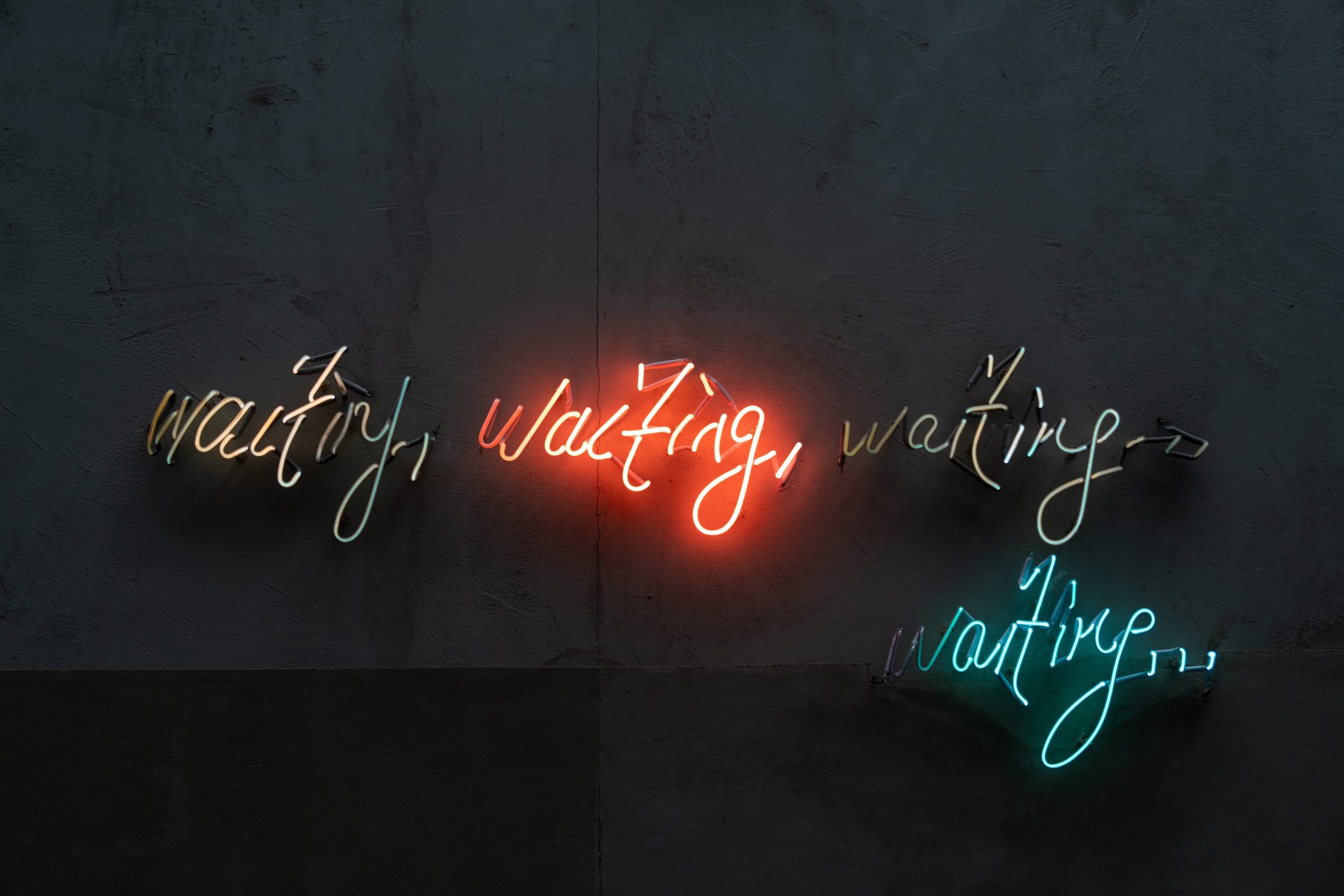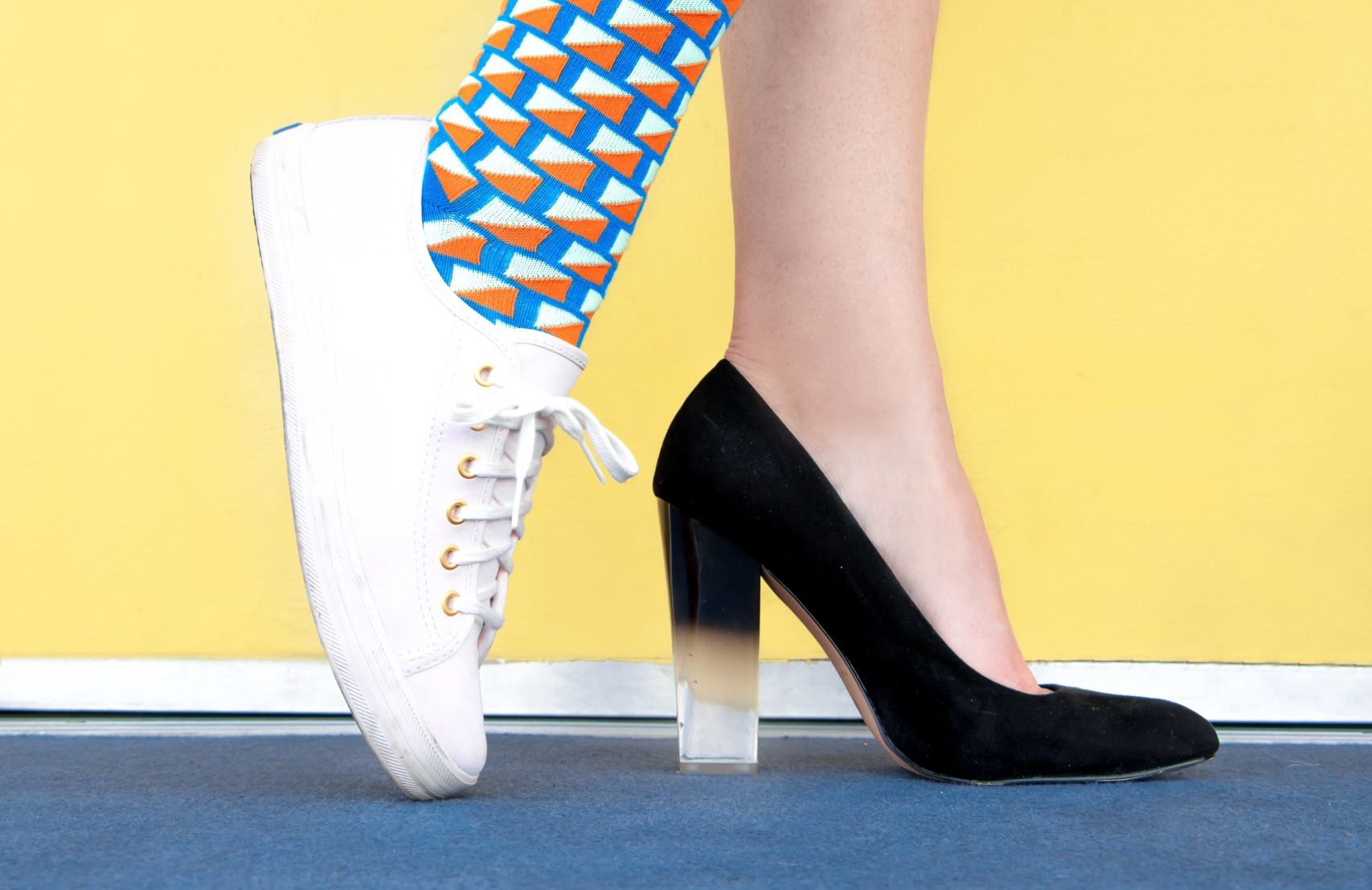You’ve applied for a new job, made it past the application screen, and just finished your first face-to-face interview. With five minutes left on the clock, your interviewer wraps up their final question. You breathe a sigh of relief. Then the interviewer springs one more question on you: “So, any questions for me?” Now what?
There’s a lot of advice out there on how to use this time. Some frame it as a chance to “interview the company back”, a chance to make the company prove they deserve your talent. Others see it as a way to show off your curiosity and critical thinking. I see it as a rare and important opportunity to peer behind the curtain of the mysterious entity you’re trying to win over. A brief opportunity where you to get to ask the questions to collect information about the role – and the company – and make sure you know what you’re getting into.
For UX researchers, this opportunity is especially critical because our role can vary so much from company to company. It’s often hard to know exactly what will be expected in a role simply based on the job description and interview. Who will you work with? What methods will you use? What type of impact will you drive? These can differ dramatically based on how the company views your role. And at large companies, it can even vary by manager and team. Asking the right questions early on can help you elicit these expectations from your future teammates before you commit to a position, ensuring you enter a company fully prepared for the road ahead.
As I mentioned in my last post, I’ve had the dubious honor of interviewing for dozens of UXR roles throughout my career. Over time, I’ve refined my question list to hone in on what I see as the critical issues that could make or break a position. These questions came from hard-earned experience: often as a result of accepting a role where the advertising failed to match reality. Each one is designed to help me root out potential issues in advance, raising a red flag that I can choose to live with or walk away from.
Interview Red Flags Questions
- How is the role divided between x/y/z type of work?
- What’s an example of a project this role might do?
- How is this role evaluated?
- How do researchers tend to work with x/y/z discipline?
- What’s the history of UXR at this company?
- How are decisions made on the team?
- What do you wish you knew when you first started?
And, as a special bonus, one final question: What would you change about your company if you could?
For others out there looking to build their own red flags list, I recommend focusing on the why behind these questions. While you’re welcome to borrow some or all of these, a potentially much more useful exercise is to think about what might be a dealbreaker for you. What do you need in a role to be happy? What type of environment do you need to be successful? Use those answers to craft questions that will help your interviewer provide the right context so that you can spot a potential mismatch in advance.
—
Question 1: How is the role divided between x/y/z type of work?
Think back on your last role. What type of work did you wish you did more of? Less of? What type of work made you happiest and what felt like a chore? This question is designed to help me dig into how I can expect to spend my time across my various responsibilities as a researcher. When I ask this question, I tend to focus on a couple of different dimensions: collaborative vs. solo, management vs. IC work, internal vs. vendor, and tactical vs. strategic. There are no right answers here, only personal preference. Focus on where you are most likely to shine.
- Collaborative vs. solo: Will you be working with other researchers on a project, or will you be expected to work primarily on your own?
- Management vs IC: Will you be expected to conduct your own research, or will you be managing a team (or both)? Is there an opportunity for management in the future?
- Internal vs vendor: Will you be spending more time conducting the research yourself or will you be directing an external agency to execute the work?
- Tactical vs strategic: How much of your time will be spent advising feature-level design vs product, cross-product, or business level decision-making?
Question 2: What’s an example of a project this role might do?
While Question 1 is helpful to get a general sense of the role, Question 2 is focused the specific type of work I’d be doing. Sometimes in UXR we use the same words to describe very different concepts (e.g. “strategy” can mean about ten different things) – so having a specific example of what my work might look like helps me paint a much more accurate picture in my head of what I would really be doing. In some cases, the interviewer might struggle to give a specific example, especially if this role is new to the team. In that case, you can pivot the question slightly to ask them about recent work that they have done and to describe how it might differ from your work. Questions to ask yourself:
- Capabilities match: Does this work match my methodological skill set?
- Topic match: Do I have expertise in this area or am I willing to build it?
- Interest match: Am I motivated to do this type of work?
- Career match: Does this work align with where I want to take my career?
Question 3: How is this role evaluated?
Performance review systems vary wildly between companies. Understanding what type of work is valued in the organization and how you will be measured against it is critical to understanding your likelihood of success. At one company I worked at, we were evaluated in part by how we contributed back to the research community (e.g. through tutorials, talks, or discipline leadership). However, at other companies, this type of work can be viewed as a distraction. Another company I worked for highly valued cross-product work while the next one preferred us to stay focused on our own team. In some companies, producing a lot of new research is valued while others reward researchers for leveraging existing research. There’s not a lot of standardization, here.
Some things to look out for with answers to this question:
- Impact vs. output: How is research output assessed? How do things like rigor, scrappiness, creativity, and volume of output considered? Is there greater focus on output (how much you do) or impact (what happens as a result)?
- Who evaluates: Who are the people responsible for evaluating your work? This can include managers, peers, or product leaders. There’s no perfect answer here, though there should be an answer, and ideally one that considers the trade-offs.
- How it’s measured: How will they know you’ve been successful? Will you be evaluated based on a metric? On OKRs? On a rubric? Again, there’s no perfect answer here but think carefully about whether their performance standards align with the kind of work you want to do.
- What gets rewarded: Consider following up with a question about what type of work tends to get rewarded. Does it have a certain shape? Think about whether that’s the type of researcher you want to become.
Question 4: How do researchers tend to work with x/y/z discipline?
Who you partner with and how they think about UXR is going to have a big impact on your day-to-day as a researcher. This question helps me quickly establish who my key partners are likely to be, how they expect to work with me, and whether that’s likely to be a positive experience. Unless you are willing to dramatically adapt your approach and/or iteratively evolve the company’s mental model of what you do, a mismatch in expectations here can lead to a lot of frustration down the line.
- Who are your stakeholders: Some companies think of UXR as a design function – where research is intended primarily to inform the user experience of the product. Others view UXR as a product function – a partner to product management and engineering that advises on product direction. Others might view it more as a marketing function – informing marketing partners on how to best position the product to appeal to users. Still others think of it as a business function – advising company leaders on decision-making on strategy and prioritization. Think carefully about what type of impact and partnerships you prefer to have.
- Who are your data partners: At one of my companies, UXR, market research, and analytics were all part of the same team (which I loved). At others, these functions barely talked to one another. Think about how important multi-disciplinary collaboration is for you vs. more dedicated specialization within your area of expertise.
- Service vs. embedded: In some places, UXR is a centralized service – serving multiple teams simultaneously. These teams often respond to requests from teams and operate in more of an agency-style model. In other places, UXR is embedded or matrixed directly onto teams. In these cases, UXR is more of a partnership. Consider how closely you want to work with product, whether you are comfortable working horizontally, and the type of relationships you want to build.
Question 5: What’s the history of UXR at this company?
This is a somewhat sneaky question that’s aimed at helping me understand two things: one, what’s the UX maturity of this company and, two, how much evangelizing am I going to have to do? The unfortunate truth is that UX research is still finding its footing in the tech industry. While I’ve been fortunate to work at some companies where research is highly valued, in other places research is not well understood or, worse, actively avoided. For some, educating others can be a rewarding and invigorating experience. For others, this might feel like an emotional drain. Be honest with yourself and the company about how much effort you are willing to put into this. Some things I look for with this question:
- UXR familiarity: How recently has UXR been introduced to the company and how well are my partners likely to understand it? Am I expected to do a lot of education?
- UXR receptiveness: Is there a general openness to working with research? Or am I going to have to do a lot of evangelizing to get people to work with me?
- User focus: In general, what level of maturity is the company at with user-centered thinking. Am I likely to have to advocate hard for the user, or is the value of user focus already accepted?
- UXR integration: How integrated is UX research into the product development process? How early is research consulted and what role do they play in decision-making?
Question 6: How are decisions made on the team?
If you read this blog regularly, you know that I feel strongly that the point of research is to change something in an organization. That means that, as a researcher, I’m expecting to work closely with my stakeholders to make decisions. To do this effectively, I need to know how that happens. This comes down to who is making the decision, what type of information they use, and how the decision gets made. This gives me a lot of information I need to understand whether and how I’m most likely to be impactful on my team.
- Who makes decisions: With this question, I look to see who is accountable for decision-making (if anyone) and whether I will be working with them. Ideally, I want to have a direct relationship with the decision-makers.
- What drives decisions: Different cultures rely on different sources of information to make decisions. Some companies are very data-driven, others more intuition-driven. Ideally, I want to work somewhere where research is an important part of the process.
- How decisions are made: Some companies are very thoughtful with decision-making, others prefer to… erm… let’s say, “move quickly and not worry about the consequences”. There are pros and cons to both, though I find that research tends to flourish in environments where product teams are empowered to make their own decisions (rather than pushing them upward) and are encouraged to think before acting.
Question 7: What do you wish you knew when you first started?
This last question is my attempt to catch any other red flags that I may not have thought to ask about. My goal is to get the interviewer to open up about their own misconceptions joining the company. What were they expecting? What did they struggle with? What’s uniquely challenging about this company and role? I added this question to my repertoire after a candidate asked me the same question as an interviewer. This question forced invited me to open up and respond with a level of candor I hadn’t yet shared with the candidate, something I hope my interviewers will consider as well. Some things to look for with this question:
- Non-answers: Does the interviewer dodge the question or only have glowing things to say about the company? For me this is a red flag. No company is perfect. I’d rather work somewhere where interviewers can be candid and direct about their experiences.
- The deep sigh: Does the interviewer respond with a look of complete exhaustion on their face? Sometimes the answer to this question reveals that the role they are asking you to step into is nearly impossible. That doesn’t mean you shouldn’t take the job, but you should be sure that you have the right support and motivation to do it.
- A cultural issue: Does the interviewer highlight a core cultural issue with their answer? Role descriptions and processes can evolve quickly – but culture takes a long time to change. Pay close attention to any issues with the culture, including issues of interpersonal respect, dominant personalities, or lack of integrity.
Bonus Question: What would you change about [company] if you could?
This last question is a bonus question because it requires a bit more bravery on your part. I usually reserve it for situations where my interviewers have shown me that it’s okay to ask challenging questions and that they are willing to answer candidly. This question builds on the previous question by allowing me to poke directly at what issues researchers face in this organization. And, specifically, which issues are hardest to solve. After hearing their answer, I have the opportunity to consider whether I’m willing to work in an environment where that problem is likely to persist.
—
As a final exercise, I invite you to reflect on your own answer to the bonus question. Think back to your prior jobs. What do you wish you could have changed? Which things (if any) ended up being dealbreakers that stood in the way of your happiness and success? What questions could you have asked during the interview process that might have highlighted those issues for you? While these questions might not help you find a “perfect” role (if one even exists), they can help you make an informed decision about whether you’re heading into a situation that is likely to make you feel valued, competent, and fulfilled — or one filled with red flags.
Genevieve Conley Gambill is a pathfinder and strategist with over ten years of experience advising top tech companies on preparing for the future. She is not a job interview expert… she’s just been through a lot of interviews. You can find more from Genevieve on LinkedIn and Twitter.
Photo by George Bakos on Unsplash



